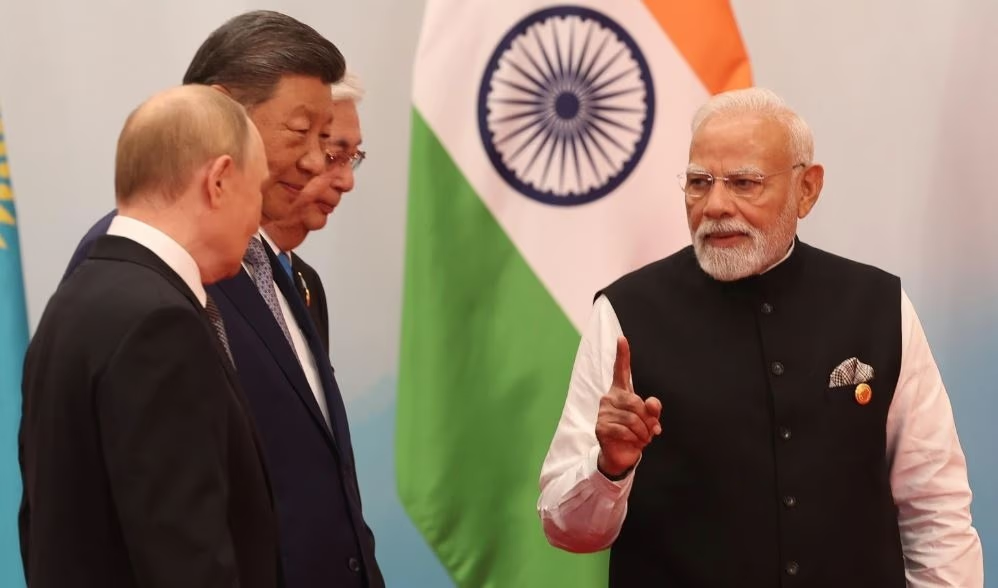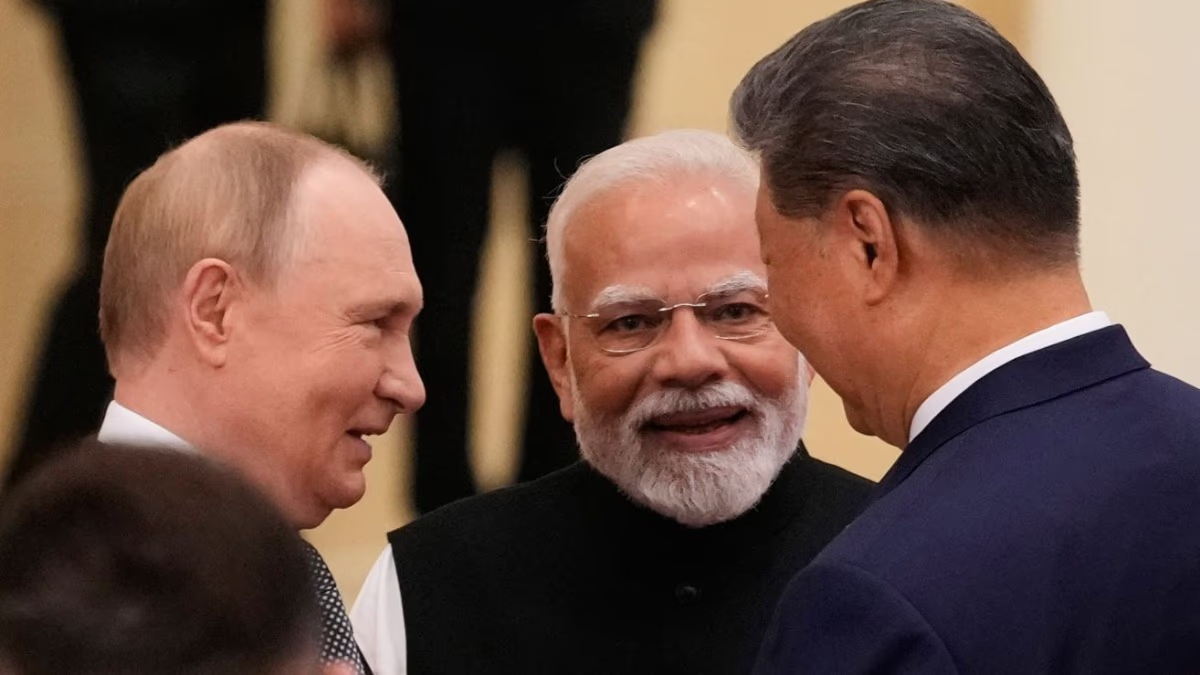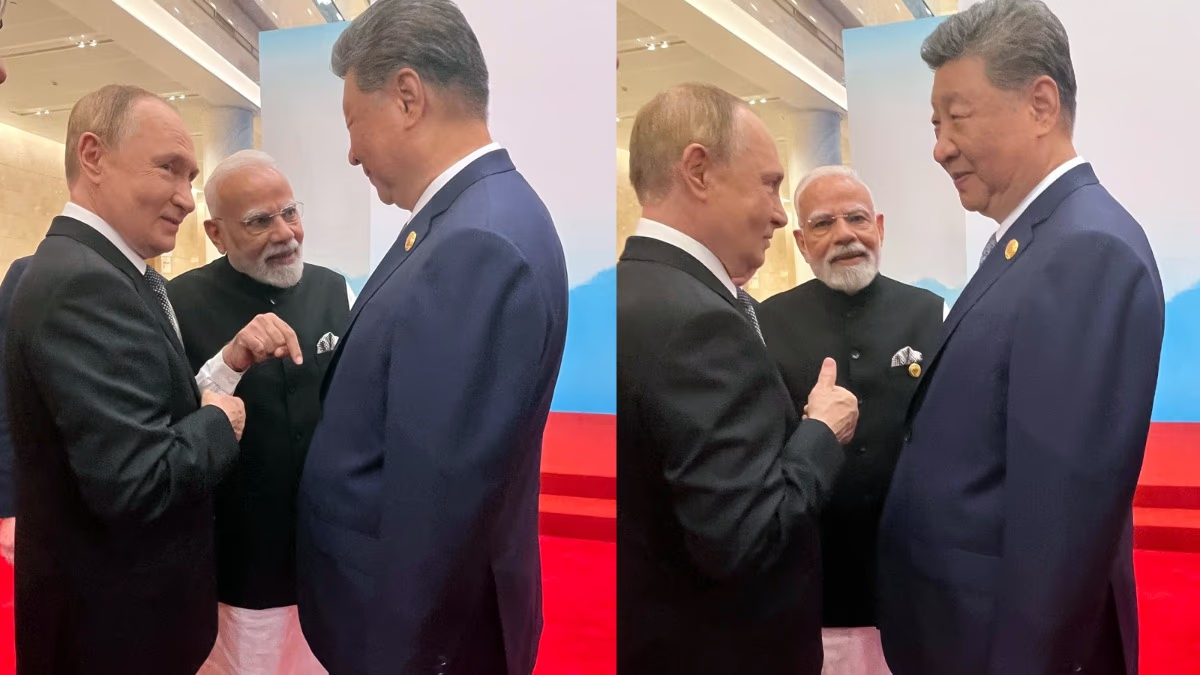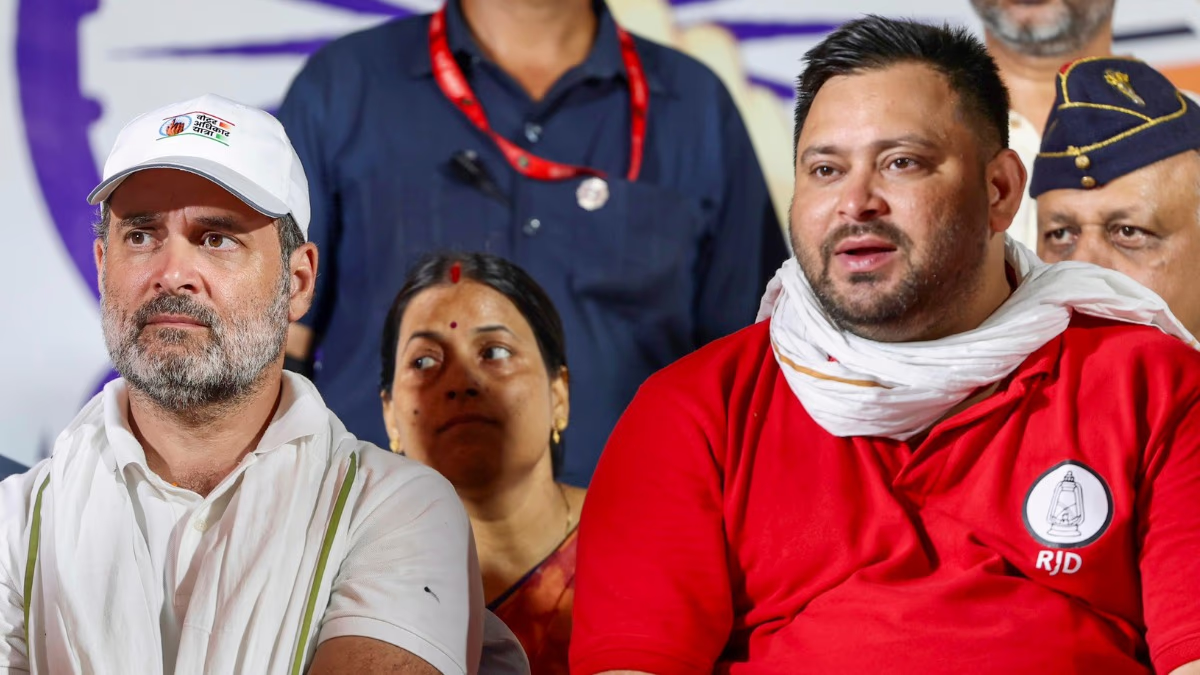During the Shanghai Cooperation Organization (SCO) Summit in Tianjin, China, the world witnessed a new global order as India's Prime Minister Narendra Modi warmly met with the Presidents of China and Russia. Together, India, Russia, and China are challenging America's dominance. This collaboration strengthens their friendship and mutual cooperation, potentially ending President Donald Trump’s tariff threats and diminishing U.S. hegemony.
The Growing Might of BRICS and SCO
A new financial framework is emerging to challenge the dollar's dominance. This friendship among India, Russia, and China could create a new power center distinct from the U.S. and its allies, shifting the balance of global power. Not only are these countries fortifying the SCO, but also BRICS to challenge American dominance.
BRICS (Brazil, Russia, India, China, South Africa) and the SCO (Shanghai Cooperation Organization) are growing stronger. Both aim to counter U.S. dominance. America's tariff policies have brought these nations closer. Recently, BRICS has emerged as a significant economic bloc with an economy exceeding $20 trillion, strengthened by Russia and China.
BRICS countries now represent over a quarter of the global economy and nearly half of the world's population. The BRICS GDP growth was four percent last year, compared to a global average of around three percent. About 40 percent of the global economy comes from BRICS nations, expected to grow by one percent this year.
Challenging the Dollar, A New World Plan
Russian President Vladimir Putin has recently called for reforms in the International Monetary Fund and World Bank, accusing some nations of using money as a 'neo-colonialist' weapon, clearly hinting at the U.S. Russia and China are increasing trade in rubles and yuan. They aim to offer the world a new financial alternative. A shared currency among them could pose a significant challenge to the dollar's dominance.

Source: aajtak
India faces the challenge of navigating a path forward. It must challenge Trump's tariffs while improving relations with a historically mercurial China. However, India remains a long-time ally of Russia, maintaining strong relations even in adversarial conditions, though border disputes with China persist.
India's Role and Challenges
Relations cooled after the violent Galwan Valley clashes in 2020. However, recent meetings between PM Modi and Xi Jinping aimed at reducing tensions have occurred. Prime Minister Modi welcomed efforts to restore relations during his meeting with the Chinese President on Sunday. He highlighted the importance of the dialogue in Kazan, Russia, which led to border disengagement, resuming the Kailash Mansarovar Yatra, and plans for starting direct flights between the countries.
On Sunday, PM Modi stressed mutual respect, trust, and sensitivity as the foundation for strengthening India-China relations. Meanwhile, Xi Jinping acknowledged the global changes and emphasized the importance of India-China cooperation. Despite these gestures, India remains cautious, not willing to act under any external pressure. It must balance its interests carefully.
Will the Quad Dream Crumble?
If the Russia-India-China alliance strengthens, the U.S.-backed Quad (Japan, Australia, India) could face challenges. India's withdrawal could reduce the Quad's relevance. The U.S. conceived it to challenge China in the Pacific Ocean. However, India maintains it does not align with any single camp and seeks strong ties with all countries. In modern diplomacy, it's understood there are no permanent friends or foes—only interests.
What Will Change With the New World Order?
The growing strength of the Modi-Putin-Jinping alliance and SCO-BRICS could transform the global order. India and China are strategizing to mitigate the impact of U.S. tariffs. Alternative trade corridors and payment systems are being developed through SCO and BRICS, set to challenge the U.S. dollar. Countries like India and China are enhancing cooperation in rare earth metals and resource supply, which will make the global supply chain more resilient.
The New Development Bank of BRICS and the economic initiatives of the SCO can help the Global South reduce dependence on the IMF and World Bank. Through SCO and BRICS, India, China, and Russia promote a world order where no single nation dominates. Reduced India-China border tensions and a strategic partnership with Russia are expected to enhance stability in Asia, with India emerging as a key leader of the Global South due to its strategic and autonomous policies.
Stronger Fight Against Terrorism
At the SCO Summit, PM Modi appealed for a unified front against terrorism, with support from Xi Jinping. This holds significance in the context of India-Pakistan tensions. PM Modi also highlighted the Pahalgam terror incident, with the SCO’s joint manifesto condemning it, reinforcing India's anti-terrorism stance.
Defense deals between India and Russia, along with growing cooperation with China, will bolster regional security. Hosting the BRICS Summit in 2026 and playing an active role in the SCO will establish India as a powerful global leader. The power of this trio and SCO-BRICS is immense; if some issues find resolution, this RIC (Russia, India, China) alliance could emerge as a formidable force.
It will be intriguing to watch how these countries work together to reduce U.S. dominance. Will they build a powerful economic and military alliance? Could they present an alternative to the dollar? For now, these nations, burdened by U.S. dominance, are laying the groundwork for a new world order where no single country dominates but mutual interests and respect are prioritized. This order will have no sole power center but will allow everyone to have a voice.




